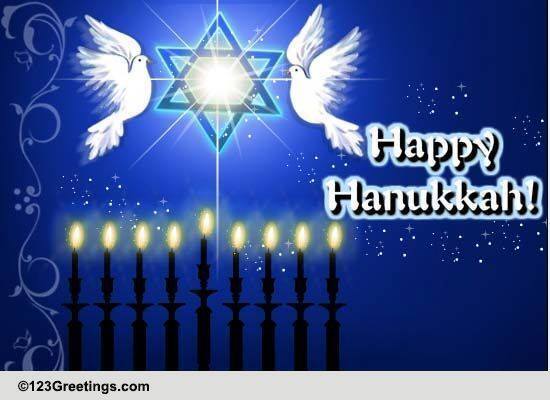The Birth of Jesus (Yeshua)
December 25, 2023
Jesus was born on the first day of the Feast of Tabernacles, which is the 15th day of the seventh Hebrew month (Tishri). He was not born on “Christmas Day", which is the birthday of pagan sun gods.
Jesus was not born on December 25. That is the date of a pagan festival of the sun god Tammuz merged with Christianity under Constantine. However, the evidence is overwhelming that Jesus was born during the Feast of Tabernacles.
Coming of Elijah
Zachariah, John the Baptist’s father, was ministering in the Temple when an angel told him he would have a son. He belonged to “the priestly group of Abijah.” (Luke 1:5). Abijah was eighth in line according to the Jewish time-table for priests ministering in the Temple: “The first lot fell to Jehoiarib, the second to Jedaiah, the third to Harim, the fourth to Seorim, the fifth to Malchijah, the sixth to Mijamin, the seventh to Hakkoz, the eighth to Abijah.” (1 Chronicles 24:7-10).
That means Zechariah would have been ministering in the Temple in June, when it was officially the turn of Abijah. If his wife therefore conceived in June, John the Baptist would have been born around March the next year during the Passover. It is the Jewish tradition to reserve a special glass of wine for Elijah during the Passover meal, in expectation of his attendance. So it makes sense for John the Baptist to be born during the Passover.
The angel told Zachariah that John the Baptist would come “in the spirit and power of Elijah.” (Luke 1:17). Indeed, Jesus confirms that John the Baptist is the expected Elijah. He told the disciples: “‘Elijah has already come, and they did not recognize him, but did to him whatever they pleased. So also the Son of Man will certainly suffer at their hands.’ Then the disciples understood that he was speaking to them of John the Baptist.” (Matthew 17:11-13).
Birth of the Messiah
If John the Baptist was born during the Passover, then Jesus must have been born during the Feast of Tabernacles. There are six months between both feasts, and we are told Mary became pregnant six months after John’s mother, Elizabeth:
“(Zechariah’s) wife was expecting a baby, and for five months she did not leave the house. She said to herself, ‘What the Lord has done for me will keep people from looking down on me.’ One month later God sent the angel Gabriel to the town of Nazareth in Galilee with a message for a virgin named Mary.” (Luke 1:24-27). “Your cousin Elizabeth is also going to have a son, even though she is old. No one thought she could ever have a baby, but in three months she will have a son.” (Luke 1:36).
Think about it. "Therefore the Lord himself shall give you a sign; Behold, a virgin shall conceive, and bear a son, and shall call his name Immanuel." (Isaiah 7:14). This verse was fulfilled, as told by Matthew 7:14 "
Behold, a virgin shall be with child, and shall bring forth a son, and they shall call his name Emmanuel, which being interpreted is, God with us". The feast of Tabernacles is to commemorate when Yehovah "tabernacled" with Israel in the wilderness.
Since Jesus came not only to bring salvation, but to also fulfill each of the seven feasts (appointed times) given to Israel. He first fulfilled the last feast, the feast of tabernacles, before fulfilling the first feast, the feast of Passover, because He was to be the “first and the last”, and the “beginning and the end”.
Does it not make perfect sense that God coming to Earth in the flesh would be at the time of “God being with us”? That is the Feast of Tabernacles. It is also known as “the Season of our Joy;” so it makes sense for the angel to tell the shepherds he brings “good tidings of great joy” concerning Jesus’ birth during the joyful season of the Feast of Tabernacles:
The angel said: “Behold, I give to you good tidings of great joy, which shall be to all people. For to you is born today, in the city of David, a Savior, who is Christ the Lord.” (Luke 2:10-11).
Shepherds do not spend the night in the pasture with their sheep after mid-October.
International feast
Quite appropriately, the Feast of Tabernacles is the only Jewish festival which is for “all people,” both Jews and non-Jews. Its coming eternal celebration will be for all the families of the earth:
“It shall be, everyone who is left of all the nations which came up against Jerusalem shall go up from year to year to worship the King, Jehovah of Hosts, and to keep the Feast of Tabernacles. And it shall be, whoever will not come up from all the families of the earth to Jerusalem to worship the King, Jehovah of Hosts, even on them shall be no rain.” (Zechariah 14:16-19).
The Feast of Tabernacles is also known as “the Festival of the Nations;” showing it is not exclusively for the Jewish nation. All the men of Israel are required to come to Jerusalem to observe the Feast of Tabernacles: “Three times in a year shall all your males appear before Jehovah your God in the place which He shall choose: in the Feast of Unleavened Bread, and in the Feast of Weeks, and in the Feast of Tabernacles.” (Deuteronomy 16:16).
This means Jerusalem becomes filled up with visitors during the festival, and they spill over into the surrounding regions including Bethlehem, which is only about five miles away. As a result, there is likely to be a shortage of guest-houses in Bethlehem; accounting for the difficulty of Mary and Joseph in finding suitable accommodation.
Tabernacle of God
In writing about the incarnation of Jesus, John employs the terminology of tabernacles. He says the Word became flesh and “tabernacled” among us. (John 1:14). Indeed, one of Jesus’ spiritual names means “God with us:” “‘A virgin will have a baby boy, and he will be called Immanuel,’ which means ‘God is with us.’” (Matthew 1:22-23). It therefore makes sense that God would choose to come down to earth in the person of Jesus Christ to tabernacle with men during the Feast of Tabernacles.
It is also quite conceivable that the wise men from the east were Jewish rabbis, anticipating the birth of the Messiah according to what Daniel was told to look for, when the conjunction of the planets Jupiter and Venus with the star Regulus, in the constellation Leo, would occur on the day of Trumpets (Revelation 12:1). At the time of Jesus’ birth, the largest Jewish population was not in Palestine but in Babylon, where they had been carried into exile by Nebuchadnezzar. Babylon is east of Palestine; and a “magi” or wise man is another expression for an astronomer. Daniel for example, who was named Belteshazzar, was regarded as one of the magi of his time. (Daniel 4:9).
Star of Bethlehem
During the seven-days of the Feast of Tabernacles, Jewish men live in booths (sukkahs) built with branches of trees. The KJV mistakenly called it a manger. It is customary to leave a hole in the roof so as to be able to look at the stars at night. Therefore, the Feast of Tabernacles is the perfect time for Jewish magi east of Palestine to notice the appearance of the star of Bethlehem.
That is why it is important to note that the magi did not get to Bethlehem at the time of Jesus’ birth, as erroneously portrayed on Christmas cards. By the time they arrived, Jesus was already about 15 months old: “When they had heard the king, they departed; and, lo, the star, which they saw in the east, went before them, till it came and stood over where the young child was.” (Matthew 2:9).
It must have taken them over a year to get there, which is why, in the bid to kill Jesus, Herod killed all the children in Bethlehem from two years old and under: “When Herod found out that the wise men from the east had tricked him, he was very angry. He gave orders for his men to kill all the boys who lived in or near Bethlehem and were two years old and younger. This was based on what he had learned from the wise men.” (Matthew 2:16).
All this point to one thing. Jesus was born on the Feast of Tabernacles. He was not born on “Christmas Day.”
HAPPY HANUKKAH. MAY THE LIGHT OF YESHUA SHINE BRIGHT ON YOU AND YOURS ALL YEAR ROUND!!
Love, Lizzy
The First Amendment (Amendment I) to the United States Constitution prevents the government from making laws that regulate an establishment of religion, or that prohibit the free exercise of religion, or abridge the freedom of speech, the freedom of the press, the freedom of assembly, or the right to petition the government for redress of grievances. It was adopted on December 15, 1791, as one of the ten amendments that constitute the Bill of Rights.
MY VOICE WILL NOT BE SILENT! IT'S CALL FREEDOM OF SPEECH!!! IF YOU WANT TO FOLLOW ME ON OTHER WEBSITES HERE THEY ARE:
ANONUP https://anonup.com/@lizdeb56/posts
AVON http://www.yourAVON.com/dcummings
CHATDIT https://chatdit.com/user/timeline/lizzydebbie
CLOUT HUB https://app.clouthub.com/users/u/loveisyeshua/posts
Disciples of Yeshua https://t.me/+7XcCK5zM88E3YTFh
FACEBOOK
https://www.facebook.com/profile.php?id=61566416639888
GAB https://gab.com/lizzymarydeb56
GETTR https://gettr.com/user/yeshuaislo...
MEWE https://mewe.com/i/lizzyc3
...


















